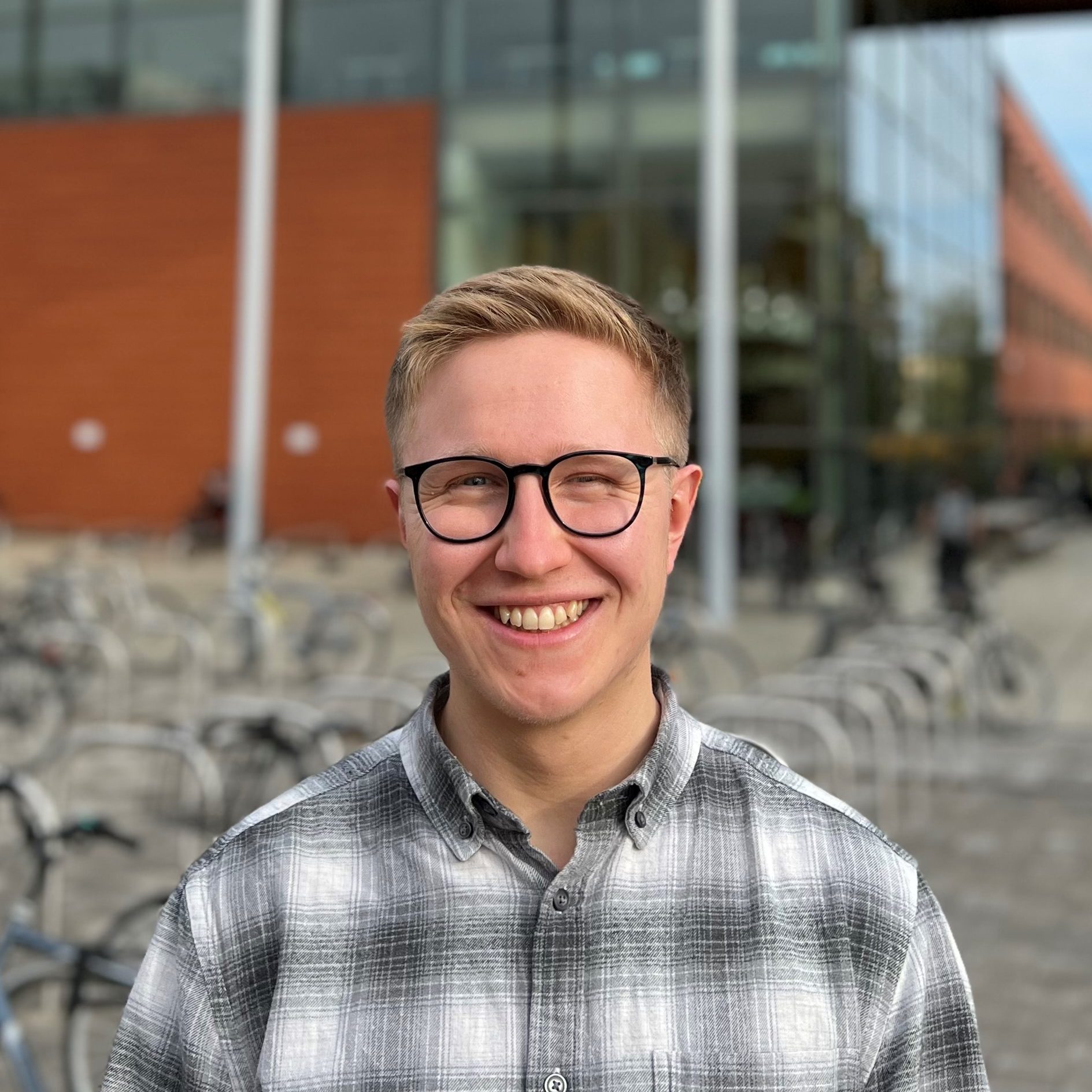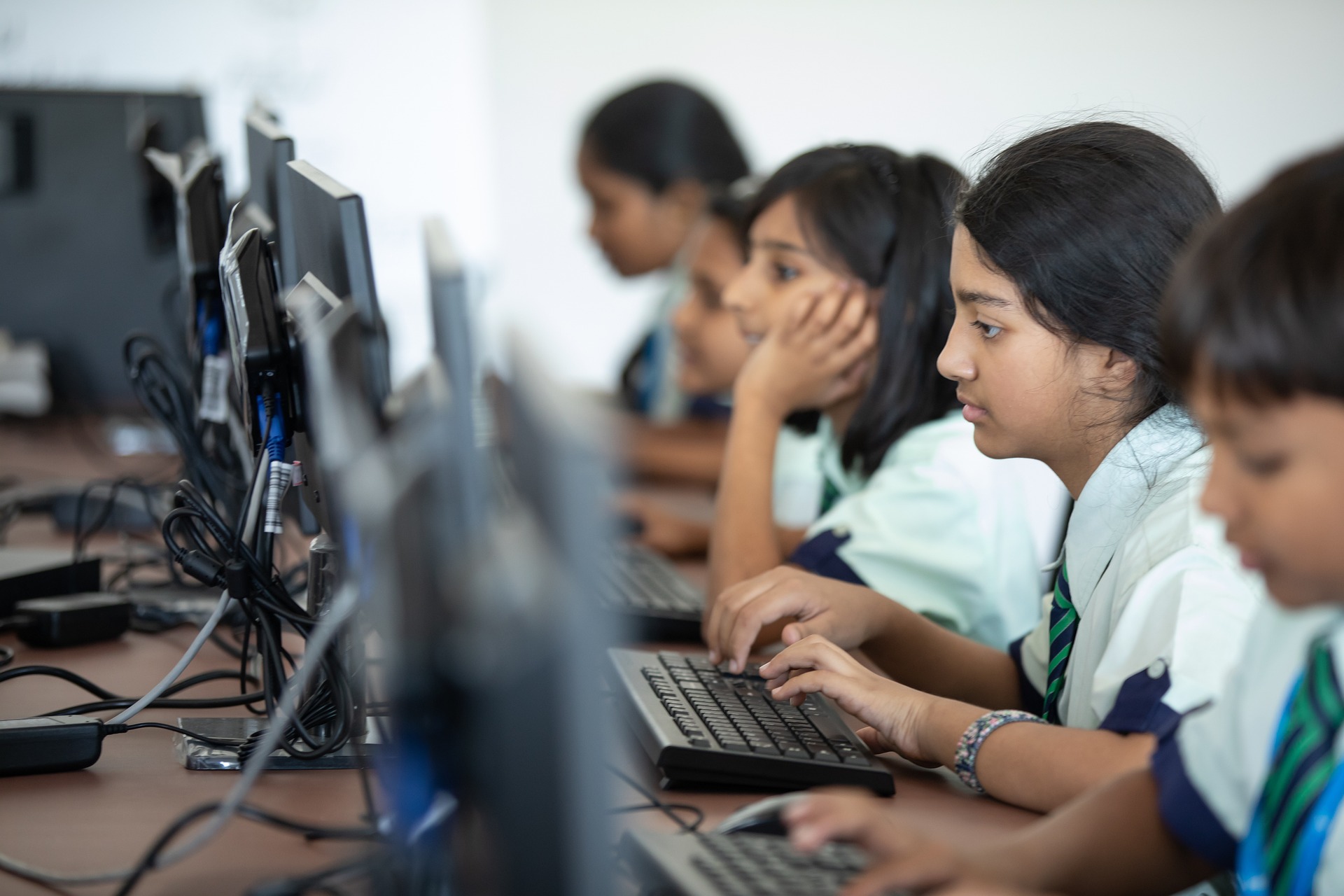The Raspberry Pi Computing Education Research Centre was formed in 2021, and in October 2022 we welcomed our very first PhD student. Here he talks about his research and his experience so far!
Welcome to Laurie!

My name is Laurie Gale, and I am a first year Computer Science PhD student at the Raspberry Pi Computing Education Research Centre, in the Department of Computer Science and Technology. It is a privilege to be the first student of this exciting venture; hopefully the first of many!
I started learning to program at age 14 and from there became fascinated with computing. Since then, I have completed an integrated Master’s degree in Computer Science at the University of Southampton, England. It was during my dissertation at Southampton that I became interested in computing education research and realised that I wanted to help others develop a love for programming. I hope my research can help young people to learn both an enjoyable and crucial skill.
Starting a PhD in computing education
The first few months of a PhD are typically spent exploring potential research ideas, so I have spent a lot of time reading interesting studies in the computing education field and speaking with academics about research topics I could consider. I am also in the process of talking to primary and secondary computing teachers about their experiences of teaching programming in the classroom. This will help me to focus my PhD on a topic that teachers genuinely believe to be important.
PhDs are well renowned for having a very independent style of working, which can be challenging at times. I have therefore realised how important it is to have a network of researchers and students around to support me both academically and personally, which is why I am grateful to be working alongside the team at the Research Centre, as well as the other doctoral students at the University.
My research topic: debugging in programming education
My personal research is focused on the teaching and learning of programming in schools. interested in investigating the attitudes and behaviours towards debugging in Key Stage 3 students (ages 11–14). Although it would not be surprising for my research focus to alter in the coming months, improving the provision of programming in schools is something I am passionate about.

I believe this is an important research area for several reasons. Firstly, debugging is a very useful skill to possess, not just for programming. Not only will students who develop good debugging-related habits be good programmers, but the practice of resolving errors will help students become more confident problem-solvers. Furthermore, the perseverance often required to solve a challenging error is a useful skill to have in other areas of learning and life!
Some research on debugging in secondary schools has already been conducted, such as the fantastic work of Ralf Romeike and Tilman Michaeli on improving the teaching of debugging in German schools. I hope to build on this work to help students in the UK improve their problem-solving skills.
I am truly honoured to be the first PhD student at the Research Centre. I have already been made to feel very welcome by the excellent team here and I am sure that my colleagues will help shape my research such that it contributes to the computing education research field and benefits classroom practice in schools. I am also excited to see how the Research Centre will grow over time. There is no doubt in my mind that an abundance of vital and high-quality research will be produced by this initiative. I look forward to presenting some results in the future!
If you would like to find out more about my research, please contact me! My email is lpg28@cam.ac.uk.